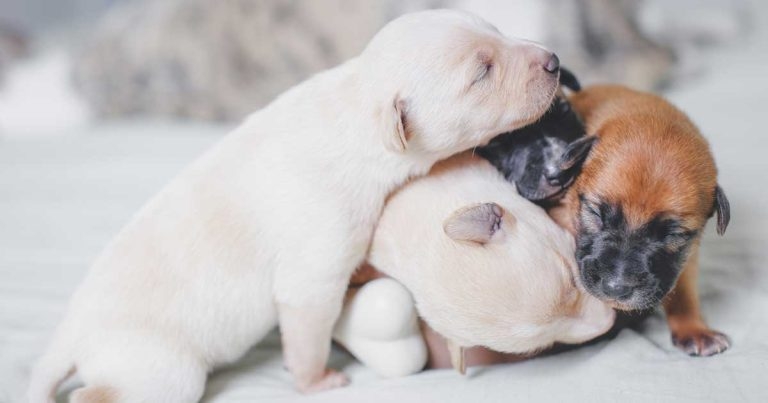21 Nov 2022
The plea by the Naturewatch Foundation coincides with the release of its own survey of veterinary professionals, which indicated overwhelming concern about CFCs activities.

An animal charity has demanded tougher regulation of canine fertility clinics (CFCs) to better protect dogs that can’t mate naturally from what it sees as unethical and irresponsible practices.
The plea by the Naturewatch Foundation coincides with the release of its own survey of veterinary professionals, which indicated overwhelming concern about CFCs activities. But the foundation’s latest report on the issue also called for a wider debate to take place on where certain procedures should be used and who should oversee them.
Some respondents raised concerns about the risk of alienating members of the breeding community and even “driving practices out of sight” without moves to encourage closer working.
The document said: “It would be useful for sectors and people with relevant expertise to come together to agree when it may or may not be appropriate for assisted breeding procedures to be used to help prevent misuse, aid understanding and inform future policymaking.
“Clearly, dog health and welfare should be the overriding concern in this discussion.
“While some procedures are clearly acts of veterinary surgery, there is less certainty about others, and this must be addressed so that regulation can be developed as appropriate.”
The foundation’s views have been set out in its latest report, “Breeding Beyond Dogs’ Limits?”.
The document includes the results of a survey of more than 700 veterinary professionals conducted during the summer.
Overall, 98.2% of respondents said they were concerned about CFCs’ activities, with 80.4% describing themselves as very concerned – 94% also backed the idea of an annual fitness to breed assessment with a vet, although some respondents did express reservations about how such a requirement could be enforced and the need for uniform guidelines.
The survey also found widespread opposition to laypeople with specific training performing the services most commonly offered by CFCs.
Although a third of respondents supported trained laypeople undertaking semen collection, that proportion dropped to 17% for intravaginal AI, ultrasound pregnancy scanning and vaginal cytology, and to just 6% for progesterone testing.
Meanwhile, fewer than half of respondents were in favour of VNs carrying out either AI (44%) or ultrasound pregnancy scanning (43%), while nearly 7 in 10 (68.7%) were opposed to the use of exemption orders as a means of regulating the CFC sector.
The orders have been suggested by the RCVS as a means of ensuring laypeople undergo relevant training and satisfy safety conditions before carrying out AI procedures in bitches.
A college spokesperson said no such exemption order has been issued since it first proposed the measure three years ago and it agreed to keep the matter “under close review” during its most recent discussions in the spring. He added: “By taking this position, the RCVS has endeavoured to strike a balance between protecting animal health and welfare, and minimising disruption to businesses that will have relied on our advice in the past.”
But the foundation believes the orders are insufficient and the survey indicated strong support for either paraprofessional regulation by the college itself (77%) or local authority licensing (88%).
The report makes six specific recommendations for action, including greater collaboration among groups interested in welfare to ensure breeders, as well as purchasers, are better informed on the issues.
The RCVS has been urged to make a public statement about the animal welfare risks of using CFCs that contains specific advice for the public.
The foundation also wants Defra to establish a task force to tackle illegal activity, together with tougher rules now and longer‑term reform of the Veterinary Surgeons Act.
The report said: “There is general consensus that using AI to overcome the inability of dogs to mate naturally is unethical and that caesarean sections should be considered an emergency operation, rather than an inevitable part of breeding for some dogs.
“To curtail the irresponsible use of AI and elective caesareans, breeding regulations should be strengthened to ensure that dogs who can reasonably be expected to require this kind of intervention due to their physical inability to mate or whelp are excluded from breeding.”
The college said it has no specific legal jurisdiction over CFCs or the laypeople who work in them. But its spokesperson added: “We would always recommend that members of the public do their due diligence and check with their veterinary practice [or] veterinary surgeon before deciding to use such a service.”
Defra said: “Under the current Veterinary Surgeons Act, only veterinary surgeons can legally perform canine AI activities; including the taking of blood samples.
“The RCVS is clear that canine AI can only be undertaken by a qualified veterinary surgeon.”
The department also insisted it understood the benefits of reforming the Veterinary Surgeons Act and “is considering the most effective and proportionate approach” for either full or partial reform.
It added: “As and when reforms are taken forward, all proposals would be subject to a public consultation.”